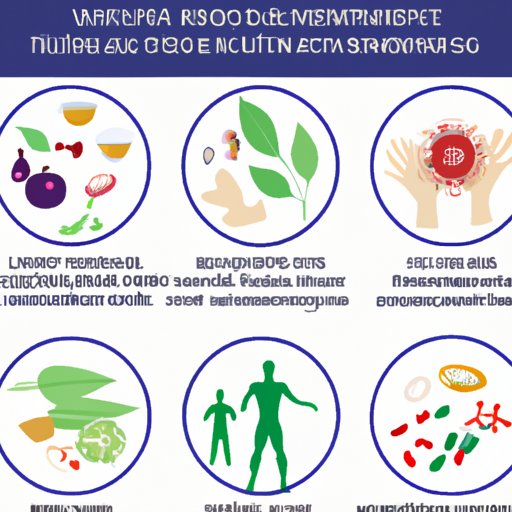
How to Treat Autoimmune Disease: Helpful Information for Patients
Autoimmune diseases occur when the body’s immune system mistakenly attacks healthy cells. Researchers have identified over 80 different autoimmune diseases, and these conditions can affect people of all ages and backgrounds. Unfortunately, autoimmune diseases can be challenging to diagnose and treat, making it essential for patients to have access to accurate information about this condition.
The purpose of this article is to provide helpful information on treating autoimmune diseases. From diet and exercise to alternative treatments and natural remedies, this guide will offer valuable advice to patients seeking relief from their symptoms.
The Importance of Diet
Diet impacts the immune system and can directly affect autoimmune diseases. Patients with autoimmune diseases should avoid processed foods, excessive sugar, and foods rich in gluten. Instead, a healthy diet consisting of vegetables, fruits, lean proteins, and healthy fats should be prioritized. Incorporating probiotics such as kombucha and kefir are beneficial. The Mediterranean diet and an anti-inflammatory diet are beneficial.
Exercise and Stress-Reduction Techniques
A healthy diet is beneficial for patients treating autoimmune diseases. However, exercise is also important. Exercise enhances the immune system, gets the blood flowing, and releases endorphins. Patients should engage in low-impact exercises such as yoga, swimming, walking and tai chi. Stress is often attributed to causing an increase in autoimmune flare-ups. To mitigate stress, patients should use techniques such as meditation, journaling, or deep breathing.
Natural Remedies and Alternative Treatments
Alternative treatments such as acupuncture, and taking herbal supplements have proven to have benefits for some autoimmune patients. These remedies offer patients an approach to symptom relief that simultaneously targets medical intervention. While it is not recommended to only use alternative treatments, the usage of them can lessen the intensity of the symptoms of autoimmune diseases.
Personal Accounts
Our lived experiences are not to be overlooked. One person’s story can bring awareness, hope, and a feeling of community to all those who share similar experiences. Our uniqueness is what strengthens us and makes each of our stories equally as valuable.
The Importance of Seeking Medical Treatment
As with any medical condition, seeking professional medical attention is crucial for those who experience autoimmune diseases. Although alternative treatments offer relief, it is recommended that they are used in combination with medication prescribed by a qualified healthcare provider.
Resources and Support Groups
There are various organizations that offer support for those living with autoimmune diseases. Patients can find resources, connect with other patients to form a support group, or become involved in advocacy efforts. For instance, there is the American Autoimmune Related Diseases Association (AARDA) and the National Institute of Allergy and Infectious Diseases (NIAID).
Conclusion
Autoimmune diseases are complex conditions that require an individualized approach to treatment. This guide aimed to provide valuable information on managing autoimmune symptoms by incorporating diet, exercise, natural remedies, and alternative treatments. It is essential to engage in a healthy lifestyle, seek medical treatment, and make use of available resources and support groups. By taking an active role in managing their autoimmune disease, patients can live fuller and healthier lives.




